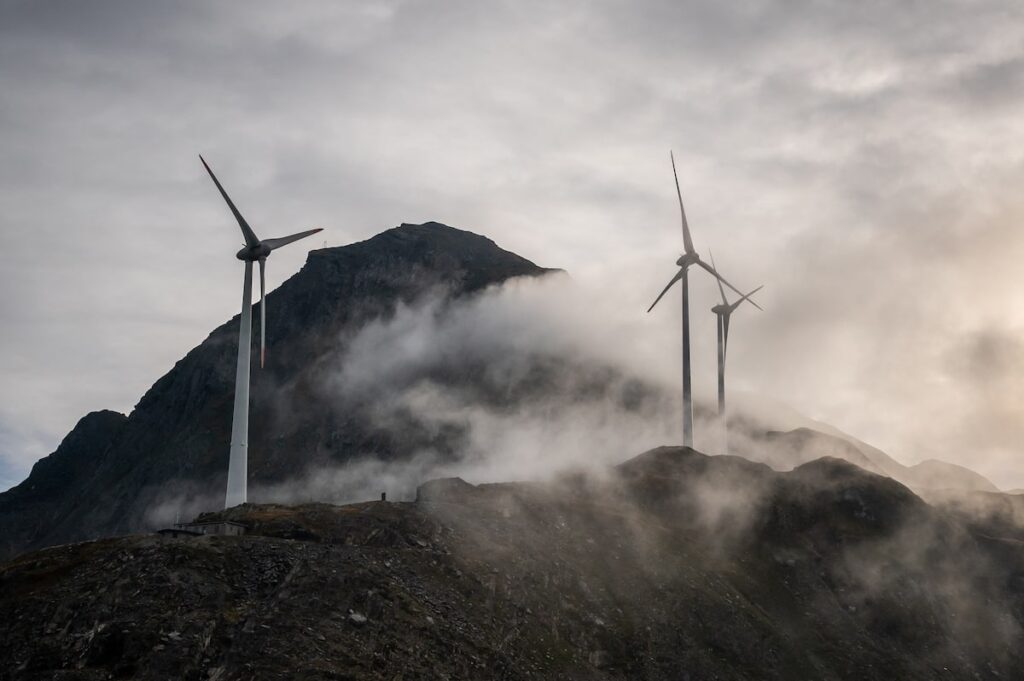Open this photo in gallery:
The photo was taken near the Nufenen Pass above Ulrichen on September 2, 2022. FABRICE COFFRINI/Getty Images
John Rapley is a writer and scholar based in London, Johannesburg and Ottawa, whose books include Why Empires Fall (Yale University Press, 2023) and Twilight of the Money Gods (Simon and Schuster, 2017).
Plans for a new European green pact to rival U.S. President Joe Biden's plan suffered a setback over the weekend after far-right parties opposed to climate change policies made significant gains in European parliament elections.
This is the current trend in the West. ESG investing, all the rage a few years ago, has fallen into disuse as politicians have called for a moratorium on the transition to renewable energy, claiming that consumers cannot afford it. Donald Trump has said he would completely reverse course if he wins the election in November. Perhaps anticipating this new reality, Toyota recently announced plans to switch back from EVs to internal combustion engine (ICE) cars, expecting EV sales to soon plateau.
That may be a mistake: pausing the energy transition may provide short-term relief, but any country that does so would soon regret the decision, because the energy transition is now accelerating outside the West, with potentially significant consequences for the global economy.
Until recently, developed countries have led the energy transition, led by a few Nordic countries. But developing countries, which have so far used cheap carbon-based energy for industrialization, are rapidly changing as the costs of new energy technologies fall. Last year alone, China built as much solar power capacity as the whole of Europe. In March of this year, India installed more than 10 times as much renewable energy capacity as the previous year. In South Africa, after years of chronic power outages, the problem was largely eliminated when the government offered tax breaks for putting solar panels on residential roofs, sparking a boom in solar panel installations.
Developing countries that are now accelerating their energy transitions are doing so for the same mundane reasons: to save money and secure supplies. Russian President Vladimir Putin went to Beijing hoping for a pipeline deal to make up for Russia's reduced sales to Europe, but came home empty-handed. China wants to reduce its dependence on imports, but renewable energy is independent of anyone. Moreover, unlike carbon-based energy, green energy has zero marginal utility: once installed, there are no fuel costs.
It will be interesting to see what happens there, as global demand growth is expected to increasingly come from developing countries with faster-growing economies than ours. Ethiopia's recent decision to ban the import of internal combustion engine vehicles may be an indication of what's to come. The country wants to generate more renewable electricity and switch to electric vehicles, which would reduce its heavy reliance on imported fuels and free up capital for other uses.
But decarbonization in developing countries does not only pose new challenges on the demand side. As developing countries switch to cheap renewable energy, cheap energy will make them even more competitive in terms of labor costs, hurting the lagging Western countries. Take Germany for example: not only will demand for its internal combustion engine vehicles decline, as is already happening in the important Chinese market, but other outputs of the country’s manufacturing-intensive economy will also become relatively more expensive, potentially causing it to lose further global market share.
So if we jump off the decarbonization train, the train will just keep on going without us. It's basic economics that drive it. Further improvements in the efficiency of carbon-based energy generation are incremental, but the production costs of renewable energy are plummeting. The same is true for battery technology. It's advancing so rapidly that the problem of intermittency of renewable energy may soon be solved. We'll be able to store energy for long periods and run all day on a single charge.
Just as happened when Western economies initially transitioned from animal power to the carbon age, eventually there will come a point where network effects make the old technology expensive. For example, as the number of internal combustion engine vehicles declines and demand for gasoline falls, gas stations will close and internal combustion engine drivers will have to travel farther to refuel.
Moreover, political interests invested in old technologies will lose power. Trump has said he would revoke Biden’s Green New Deal, but he will clash with big corporate interests, including the oil industry, which has used Biden’s subsidies and defended it even in the Trump administration. During Trump’s presidency, pro-carbon energy policies have failed to stem the trend toward renewable electricity generation for the simple reason that renewables have become more profitable than coal. Just look at Texas: it may be the heart of oil country, but it is also the epicenter of America’s green transition.
The same shifting balance of political power applies to countries: as more countries in the world decarbonize, carbon-intensive nations become weaker in international negotiations. Thus, beyond a certain threshold, the energy transition will reach escape velocity and the snails will be left behind.
So, like Hemingway's line about bankruptcy, the energy transition will start slowly and move fast.



